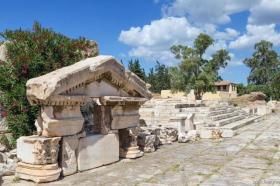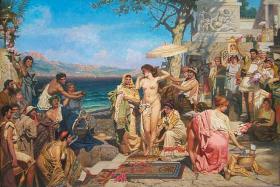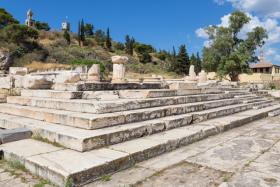Elefsina - Cultural Capital
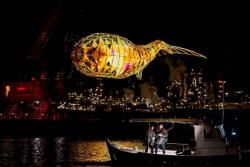 On Saturday 4th February 2023, the Greek President Katerina Sakellaropoulou attended the opening ceremony of the '2023 Elefsina European Capital of Culture' series if events which is inspired by the mythology and history of the city. The ceremony starts a weekend of special opening events at the coastal front of Elefsina in west Attica, with exhibitions, concerts, DJ parties and side events across the historic town. By becoming the European Capital of Culture, Elefsina is joining an ECoC family of over 70 European cities that have held the title so far. One of the five most important sacred cities of antiquity, the city of the Eleusinian Mysteries and birthplace of Aeschylus, Elefsina was transformed from the 19th century into the productive engine of Greece and now one of its largest industrial centres.
On Saturday 4th February 2023, the Greek President Katerina Sakellaropoulou attended the opening ceremony of the '2023 Elefsina European Capital of Culture' series if events which is inspired by the mythology and history of the city. The ceremony starts a weekend of special opening events at the coastal front of Elefsina in west Attica, with exhibitions, concerts, DJ parties and side events across the historic town. By becoming the European Capital of Culture, Elefsina is joining an ECoC family of over 70 European cities that have held the title so far. One of the five most important sacred cities of antiquity, the city of the Eleusinian Mysteries and birthplace of Aeschylus, Elefsina was transformed from the 19th century into the productive engine of Greece and now one of its largest industrial centres.
Elefsina becomes the fourth European Capital of Culture in Greece, after Athens in 1985, Thessaloniki in 1997 and Patras in 2006. Elefsina was named the European Capital of Culture for 2021 back in November 2016, however, it only became effective in 2023 due to the Covid-19 pandemic postponement.
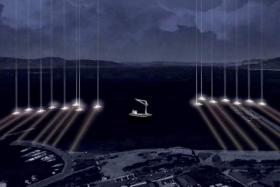
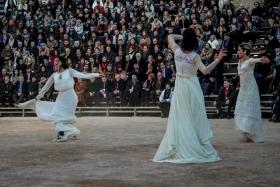
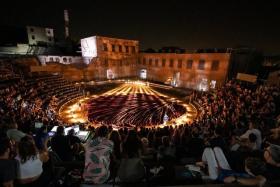
Ancient Eleusis, today's Elefsina, was founded in the second millennium BC. It stood upon a height a short distance from the sea and opposite the island of Salamis. It's location possessed three natural advantages . . . as it was on the road from Athens to the Isthmus of Corinth, it was in a very fertile plain and it was at the head of an extensive bay. It owed its celebrity to its being the main centre of worship of Demeter and Persephone, and to the mysteries celebrated in honour of these goddesses which were called the Eleusinia. They continued to be regarded as the most sacred of all the Grecian mysteries, down to its destruction in 396 AD.
